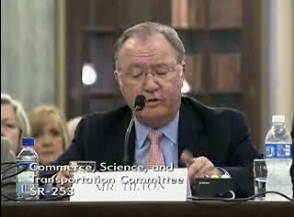A Quote by Douglas Rushkoff
The easiest way to figure out who the customer is in an online space is to figure out who is paying for the thing. Usually, the people paying are the customers. So on Facebook, the people paying are marketers. That makes them the customers. And it means we are the product being delivered to those customers.
Related Quotes
If you ask who are the customers of education, the customers of education are the society at large, the employers who hire people, things like that. But ultimately I think the customers are the parents. Not even the students but the parents. The problem that we have in this country is that the customers went away. The customers stopped paying attention to their schools, for the most part.
The true end users of Facebook are the marketers who want to reach and influence us. They are Facebook's paying customers; we are the product. And we are its workers. The countless hours that we - and the young, particularly - spend on our profiles are the unpaid labor on which Facebook justifies its stock valuation.
I think a much better use of time and resources is to really focus on your existing users or customers and figure out what changes can you make in the Web site, the service, the product, whatever, to get them to come back more often to generate that repeat business and once you kind of figure out that formula, then when you get new customers the whole thing just kind of grows exponentially.
Customers are a great way to finance a business for many reasons. First, customer financing is typically non dilutive. They want something from you other than equity in your business. Customers also help you fit your product to the market. And customers will help debug and improve the quality of the product.
Often people say they can't base their strategies on customers because customers make unreasonable requests and because customers vary too much. Such opinions reveal serious misconceptions. The truly outside-in company definitely does not try to serve all the needs of its customers. Instead, its managers are clear about what their organization can and should do for customers, and whatever they do they do well. They focus.
Often, very talented technical people find it extraordinarily difficult to take the viewpoint of customers, who are often ignorant about the technology and who may have strong and perhaps incorrect prejudices about it. The technical people may believe, deep down, that they know better what customers "should" need. Customers, of course, have a different perspective. They want products that will solve customer problems and provide other customer benefits, and will do so without undue risk or cost. Not infrequently, customers view advanced technology itself as a risk.





































